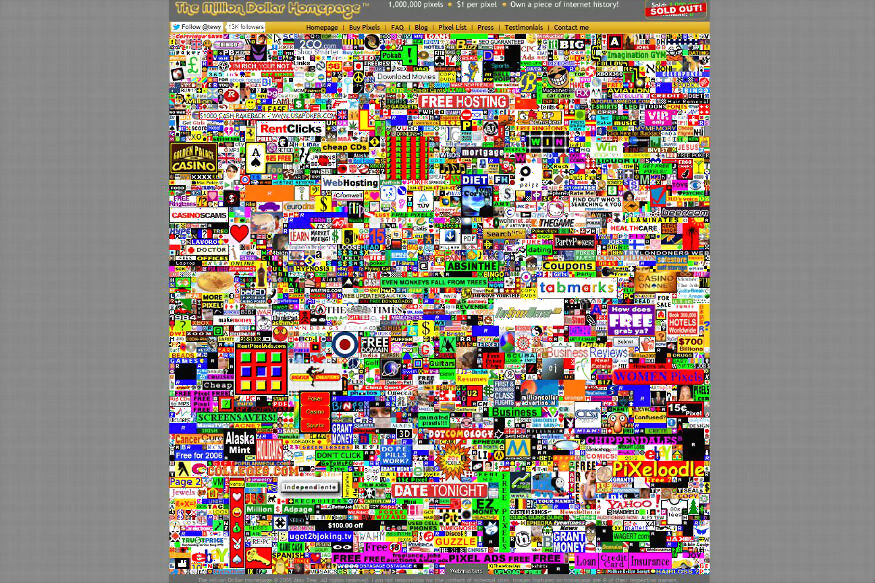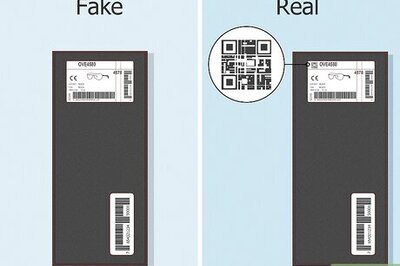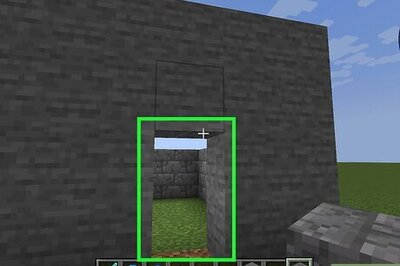
views
Do you remember your earliest days on the internet? If, like me, you were born in the ‘90s in India, chances are that you can still recall the distinctive bleep of a dial-up internet connection, which often took up to 15 minutes simply to connect. Then, there were the internet cafes, for when the merciful state-run telecom operator would simply fail to provide connectivity — the Sify iWays and the local Cyber Plazas, if you will. Email addresses were born on Rediff, Yahoo was the leading pioneer of information on the internet, YouTube was the rebel video channel that none of us had the bandwidth to stream from, and America Online Limited, more endearingly remembered as AOL, ran the forefather of online publications and the first semblance of a global, decentralised workforce made (almost) purely of youth.
The early internet
Put in perspective, the internet back in the early ‘00s was filled with empty alleyways. There was no social media, newspapers and television broadcasts were still the biggest sources of information, and privacy concerns did not bother the common man, who did not hesitate to use ‘xyz123’ as a password to their email. Yet, excitement about electronically reaching out to another part of the world was incredibly high, particularly in India. Our nation was not among the internet’s biggest markets, and the potential spending power of the average Indian user meant that internet connectivity was a luxury back then.

Some of the biggest names back in the day were Rediff, Yahoo, AOL, MSN, Metacrawler and Netscape, among others. For any millennial, it would seem like a strange world — one where Amazon and Google were pretty much non-existent. Most image searches revealed pixelated results, a 144p video often needed to be buffered, Torrent file sharing was a way of life, and the greatest use of the internet came with playing online poker, hunting for dating websites, finishing college assignments and spending hours in chat rooms, mostly hosted by Yahoo! and MSN. An interesting collage can be found of humanity’s first footprint on the internet, at The Million Dollar Homepage.
The internet’s earliest graveyard
Back when its founder Alex Tew founded it, his necessity behind the existence of the website was to simply earn money by letting any user willing to pay have a space on the internet to advertise. The webpage literally has one page, with all of a million pixels contained in it, which could be purchased in blocks of 100 pixels per advertiser, at $1 per pixel. However, as the BBC Future rightly noted, its significance is stronger today, with the page representing a world on the internet that looks like it belonged to an era gone by ages ago. Think of this as the human equivalent of the internet’s Stone Age, with us, the earlier users of the internet, having left our marks in the virtual sands of time. The icons and short meta descriptions left there by the earliest advertisers are largely pixelated, and the mosaic formed by it look like the entry screen of an early generation 8-bit game. Iconically, most of the webpages advertised on it lead to dead ends, showing a lacklustre eventuality of the death of the internet’s earliest websites. Was this how it was meant to be?

While not all of the sites are dead pixels (The Times UK is the most prominent of all the logos), the page itself feels like a forgotten mechanical junkyard that belonged to your grandad, which you stumbled upon during garage cleaning. It is an eclectic collection of an era gone by, with the icons representing how much times have changed on the internet. For instance, The Million Dollar Homepage’s most popular entrants include online casinos, dating websites, the earliest entities promising “instant SEO”, and sites that gave you the best deals on eBay and Amazon. And yet, while the shell still prevails, much of the earliest information is gone.
America Online Limited
Back in its heyday, AOL had its presence in plenty of markets, even beyond America. In India, AOL ran a youth and student-run setup, termed Coolage. The idea was to tap into the internet-frenzied college youth, and give them a taste of online publishing. It was a repertoire of reports, features and recorded information, put together in a format that represents the average internet blog of today.
“We used to have a strong team of writers, sub-editors and even reporters. It was fun, because while being a college kid, I got to earn my own money while getting a popular, famous portal to voice my opinion on,” states Vernika Awal, who was associated with AOL Coolage, one of the last portals of its kind until the online-centric publication craze took over. Awal was associated with Coolage until 2013, which is when they wrapped up India operations and folded their business in.

What she particularly misses, however, is that most of her work is not to be found online any longer. Coolage, interestingly, is not even that old, having opened their services in India in 2011, and wrapped up by 2014. The stint never took off, and by this time, AOL simply did not have enough firepower to pull its search and traffic rankings through. Five years and a severe lack of documentation later, AOL’s youth-centric stories on society, music, culture, movies, sports and technology are simply offline, most likely forever.
It is this that stands testament to the death of the early internet. It is a bit paradoxical, since we presently stand at a point where collection and archiving of digital footprints attract severe privacy debates. And yet, as we clamour to save mankind’s first digital presence for documentation, one cannot help but imagine the multiple eras that we have already traversed, to which the digital graveyards stand proof of.
















Comments
0 comment